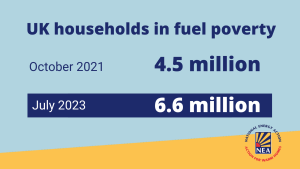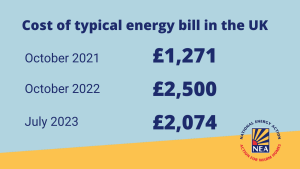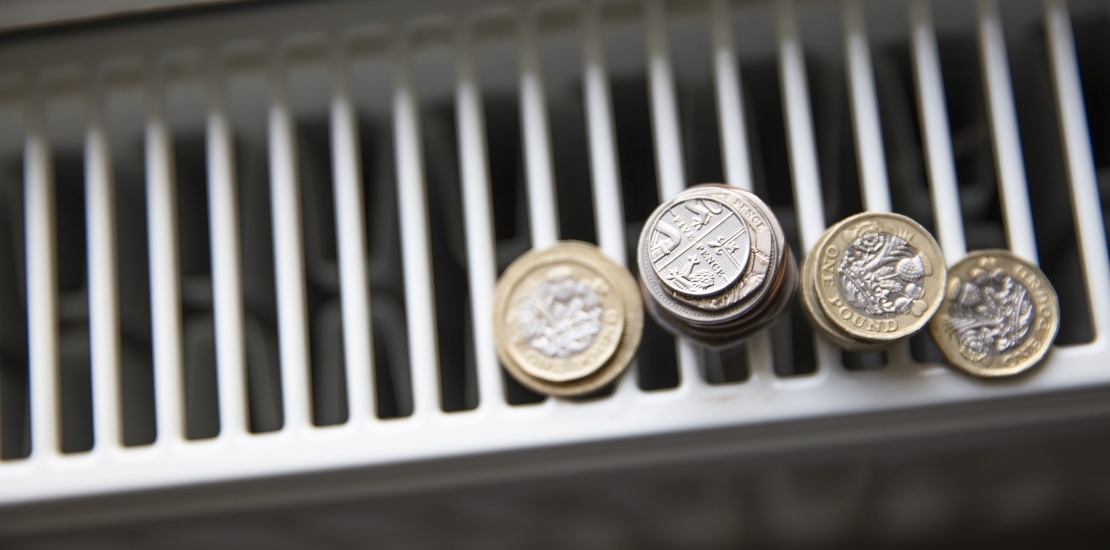Contact:
Anna Cook, Head of Communications, (anna.cook@nea.org.uk) Mobile: 07884 371913
FOR IMMEDIATE RELEASE – Thursday 25 May 2023
Today, energy regulator Ofgem has announced that the typical annual household bill will be £2,074 from July to September (NB please note the bill itself isn’t capped. The kwh price is capped so households that use more will pay more.)
While this might seem like good news, there are some important issues that fuel poverty charity National Energy Action wants to highlight:
- The number of households in fuel poverty will still be approximately 6.6 million, according to National Energy Action’s research team.
- Energy bills are still approximately almost double the level of October 2021. Just 21 months ago, the typical household paid £1,271 a year, and even with the new price, 2 million extra UK households are in fuel poverty, up from 4.5 million. It is a 65% increase in a typical bill since October 2021 and an 80% increase since April 2021.
- Bills in July will be comparable to last winter as the Government has withdrawn support. From October 2022 to March 2023, the UK Government provided £67 a month for six months to subsidise energy bills. It means in real terms there is no reduction in bills.
- Many vulnerable households racked up £3 billion debt as bills spiralled and many have not been able to pay this off.
- The cost-of-living payments, administered by DWP, are meant for vulnerable people to access support but over two million of those who need support are not eligible as they don’t receive means tested benefits.
National Energy Action’s chief executive Adam Scorer says:
“Coming out of winter, most people will welcome any respite from record high prices, but it still leaves prices more than two-thirds higher than the start of the energy crisis and two million more households trapped in fuel poverty. More than two and half million low income and vulnerable households are no longer receiving any government support for unaffordable bills. For them, the energy crisis is far from over.”
If this goes online, please link to www.nea.org.uk/energyhelp
For background and a timeline of the energy crisis go to www.nea.org.uk/energy-crisis
If you tweet, please include @NEA_UKCharity














